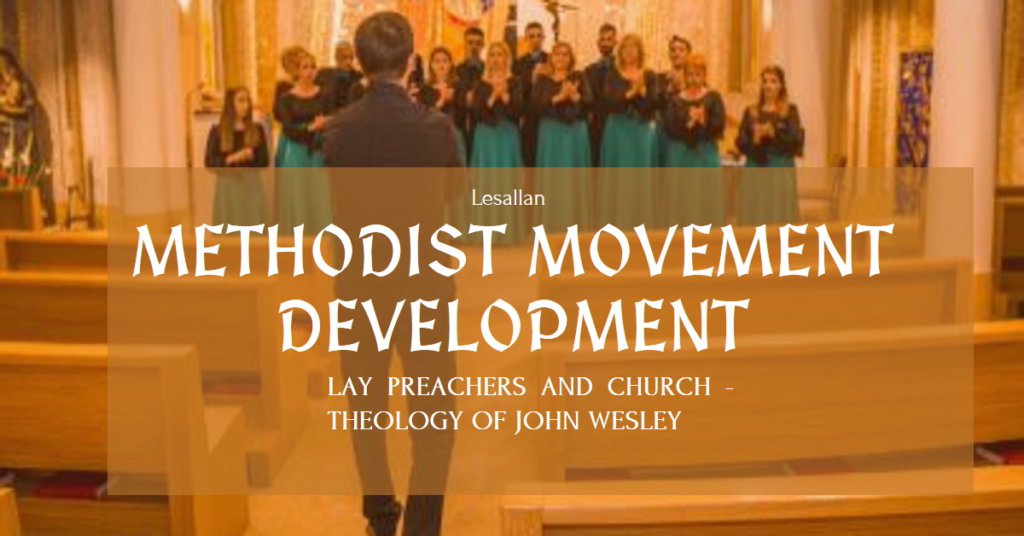
Lay Preachers and Church – Development of the Methodist Movement
Lesallan Bostron
Ohio Christian University
THE3360 Theology of John Wesley (ONLSP24)
Dr. Steven Gerig
February 4, 2024
Lay Preachers and Church – Development of the Methodist Movement
The assigned text (Collins, 1999) discusses a chapter from the book A Real Christian: The Life of John Wesley, which explores John Wesley’s challenges as the Methodist movement leader. These challenges pertained to the utilization of lay preachers and the dynamics of the movement’s relationship with the Church of England. The essay aims to overview Collins’ examination of these issues and assess his arguments based on the historical and theological evidence presented.
In his work, Collins (1999) delves into the topic of lay preachers in Methodism. Initially, Wesley hesitated to allow unordained men to preach, as he believed that preaching was a sacred function reserved for the clergy. However, he changed his stance after witnessing the zeal and effectiveness of certain lay preachers, such as Thomas Maxfield and John Nelson, who were converted under his ministry and felt called to share the gospel with others. Additionally, Wesley recognized the scarcity of ordained clergy willing to preach to the poor and marginalized people in England and abroad, particularly in rural regions where Methodism saw the most success. Collins (1999) asserts that Wesley’s decision to authorize lay preachers was a pivotal factor in the growth and expansion of Methodism, as it allowed him to spread his message of salvation by faith and holiness of life to a broader audience. While Collins acknowledges that lay preaching brought about specific challenges and risks for the Methodist movement, such as the possibility of doctrinal error, moral failure, or ecclesiastical censure, he highlights its overall positive impact.
The second issue Collins (1999) explores is the tension between Methodism and the Church of England. He explains that Wesley was a loyal Anglican who never intended to separate from the established church. However, he faced many challenges and opposition from the bishops and clergy who disliked his irregular practices, such as field preaching, itinerant ministry, lay preaching and organizing societies and classes. These practices were seen as violations of the church order and discipline, as well as threats to the authority and reputation of the church. Collins (1999) also points out that Wesley had to deal with the pressure from some of his followers and colleagues who wanted to form a separate denomination or join other dissenting groups, such as the Moravians or the Calvinists. These groups offered more freedom and diversity in worship, doctrine, and polity than the Church of England. Collins (1999) suggests that Wesley’s ecclesiological vision was shaped by his pragmatic and catholic spirit and commitment to spreading scriptural holiness throughout the land. He argues that Wesley balanced being faithful to his Anglican heritage and being flexible within his Methodist context. He also contends that Wesley’s ecclesiology was not static, but dynamic as he adapted to changing circumstances and challenges.
Collins (1999) provides a comprehensive and balanced account of these issues central to Wesley’s life and ministry. He supports his arguments with ample evidence from primary and secondary sources, such as Wesley’s journals, letters, sermons, hymns, minutes, conferences, and other contemporary writers and historians. He also engages with different perspectives and interpretations from within and outside Methodism. He also clearly understands Wesley’s historical and theological context, such as social conditions, religious movements, political events, and philosophical trends that influenced him. His book is a valuable resource for anyone who wants to learn more about Wesley and Methodism.
In summary, chapter seven of Collins’ (1999) book A Real Christian: The Life of John Wesley provides a valuable insight into the issues surrounding the use of lay preachers and the relationship between Methodism and the Church of England in the eighteenth century. Collins shows how Wesley navigated these issues with courage, wisdom, and flexibility while maintaining his identity as a real Christian and a faithful Anglican.
References:
Collins, K. J. (1999). A Real Christian: The Life of John Wesley. Abingdon Press.


